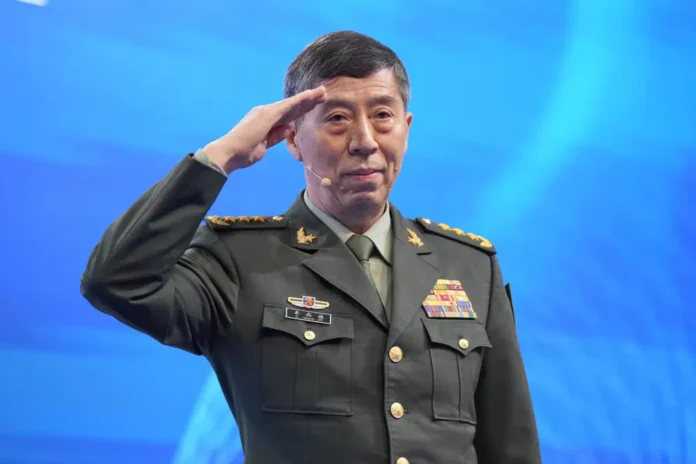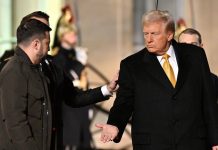Singapore (AP) – China’s defense minister defended sailing a warship across the path of an American destroyer and Canadian frigate transiting the Taiwan Strait, telling a gathering of some of the world’s top defense officials in Singapore on Sunday that such so-called “freedom of navigation” patrols are a provocation to China.
In his first international public address since assuming office in March, General Li addressed a gathering of top defence officials and reiterated China’s stance on the issue. While he acknowledged China’s acceptance of “innocent passage,” he stressed that China would not tolerate any attempts to exploit the concept of freedom of navigation to assert control over navigation routes.
The defense minister’s remarks came in response to US Defense Secretary Lloyd Austin’s earlier statements at the same forum. Austin had emphasized that the United States would not back down in the face of coercion from China and would continue conducting regular patrols through the Taiwan Strait and the South China Sea to challenge Beijing’s expansive territorial claims.
Coinciding with Austin’s remarks, a Chinese warship intercepted a US guided-missile destroyer and a Canadian frigate as they transited the Taiwan Strait. According to the US Indo-Pacific Command, the Chinese vessel overtook the American ship and conducted a dangerous maneuver, crossing its bow at an unsafe distance of approximately 150 yards (140 meters). Additionally, the US had previously reported an aggressive encounter between a Chinese fighter jet and a US Air Force reconnaissance aircraft in the South China Sea.
These incidents have raised concerns about the potential for accidents and the escalation of tensions between China and the United States, which are already at a heightened state. General Li placed the blame squarely on the US and its allies, accusing them of creating the dangerous situation. He called on these countries to focus on their own territorial airspace and waters, cautioning against provocative actions near the territories of other nations.
During his speech, General Li restated China’s long-standing claims on Taiwan, describing it as a “core interest” for China. He accused the US and other nations of interfering in China’s internal affairs by providing military support and engaging in high-level diplomatic exchanges with Taiwan. While Li emphasized China’s commitment to peaceful development, he asserted that China would not hesitate to defend its legitimate rights and interests.
US Defense Secretary Austin had outlined the US vision for a free, open, and secure Indo-Pacific region in his speech. He underscored the importance of deterrence against aggression and the promotion of prosperity through adherence to rules and norms. In response, General Li criticized the US approach, claiming that some countries selectively apply rules and international laws while forcing their own rules upon others.
Despite the escalating tensions, General Li acknowledged that a severe conflict or confrontation between China and the US would have disastrous consequences for the entire world. He urged both countries to find ways to improve relations, emphasizing the need for sincerity, concrete actions, and mutual respect. Li called for the development of a new type of major-country relationship between China and the US, urging the US to act in a manner that stabilizes relations and prevents further deterioration.
The interaction between General Li and Secretary Austin during the conference remained limited, as Li declined Austin’s invitation for a substantive engagement. The US has expressed disappointment over China’s lack of response to previous requests for dialogue and working-level engagements. General Li indicated that China remains open to communication, but stressed that mutual respect is a fundamental principle necessary for productive dialogue.
In conclusion, General Li emphasized that both China and the United States stand to benefit from cooperation while losing out in a confrontational scenario. He urged the US to act sincerely and take concrete actions to stabilize relations, prevent further deterioration, and use diplomacy instead of power and force.






